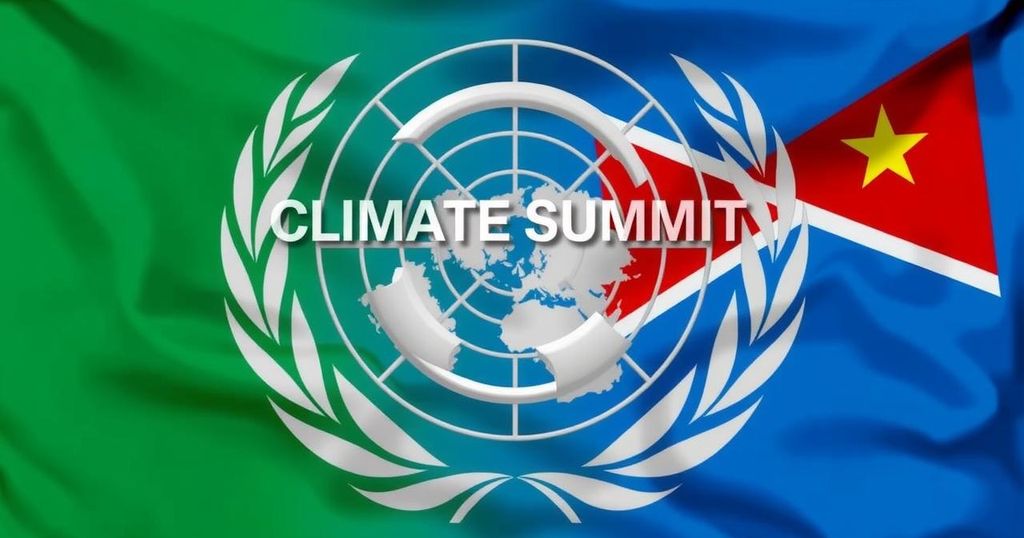Papua New Guinea has announced it will boycott the upcoming UN climate summit, criticizing the event for being ineffective and filled with empty promises from major polluters. The Foreign Minister condemned the lack of substantive action over recent years and indicated that the nation will seek to establish its own climate agreements with like-minded countries.
Papua New Guinea has announced its boycott of the upcoming UN climate summit, describing the event as a “waste of time” rife with unfulfilled promises from major polluters. Foreign Minister Justin Tkatchenko emphasized the futility of attending if no substantial progress is made, criticizing the trend of wealthy nations making empty commitments. Highlighting his country’s pivotal role as one of the world’s largest rainforest nations, he complained about the ongoing inaction despite the country absorbing pollution from industrialized nations. Rather than participating in what he termed a “talk fest,” Papua New Guinea intends to pursue bilateral climate agreements, highlighting ongoing negotiations with Singapore as a promising alternative to the UN talks.
The announcement from Papua New Guinea comes amidst criticisms of the Conference of Parties (COP) climate summits, which have been perceived as ineffective in delivering viable solutions to climate change. Historical context reveals that while significant agreements like the Paris Agreement emerged from these summits, subsequent meetings have often been marred by inaction and insufficient accountability from major carbon emitters. Papua New Guinea, particularly vulnerable to climate change, has expressed frustration at the slow pace of support and funding aimed at assisting developing nations in combating climate impacts. The backdrop of these discussions includes a rising awareness and calls for accountability in climate negotiations.
In summary, Papua New Guinea’s decision to boycott the upcoming COP29 summit demonstrates a growing frustration with the current framework of global climate negotiations, which has failed to yield tangible results. The government seeks to address climate change through direct engagements with other nations, positioning itself as a proactive player willing to explore alternative collaborations. This stance reflects a notable shift in perspective on how developing nations can effectively advocate for meaningful action against climate challenges.
Original Source: www.independent.co.ug






